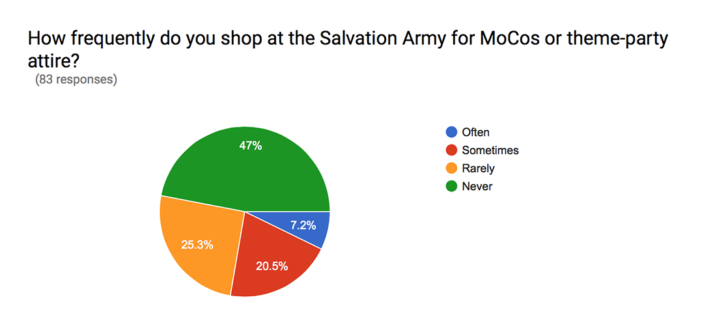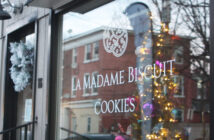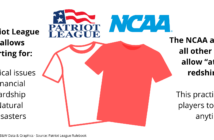It’s a Saturday morning and the sidewalks of East Fifth Street are awash with color. A student in a Hawaiian shirt and a Burger King crown shouts something to his friend, who has chosen a look that includes a cheetah onesie and Crocs. Across the street, another student — this one in a basketball jersey stamped with the American flag and a backwards green baseball hat — leans down to hear something from a young woman with purple cat ears.
On almost any other street this image might appear out of place, but at Lehigh the thought of MoCos, the tradition of morning cocktails in bright and wacky apparel before football games, has become as common to a student’s vocabulary as 4 o’clocks or the Hill.
Students parading down the streets in MoCos apparel appear as comfortable as the permanent residents who offer them a wide berth as they travel down the same sidewalks.
Recent initiatives have been taken through the university to curb the overlap of MoCos and football, with students instead encouraged to attend tailgates at Goodman Stadium and save their colorful traditions for away games. Still, questions remain surrounding the role of MoCos and their impact on the South Side community.
The Bethlehem branch of the Salvation Army is a mere 15-minute drive from campus. This extension of the more than 150-year-old organization offers Lehigh Valley residents access to emergency social services, Sunday School and a homework club. “SalVal” also offers a thrift store, whose inexpensive items have made it a staple for many Lehigh students seeking out the perfect MoCos outfit.
In a recent Brown and White survey, 83 students were polled by how frequently they shop at the Salvation Army to get clothes for MoCos or themed parties. Fifty-three percent responded they had shopped there at least once, with seven percent saying they shop “often.”
“You just hope they don’t think of this whole place as a joke,” said Randi Jordan, who has worked with the Salvation Army since 2011. “We do so much more than offer you clothes.”
Jordan said the number of patrons in Lehigh apparel has increased during her time with the organization, adding that Thursday and Friday seemed to see the highest number of such visitors. She said while she doesn’t mind students visiting the thrift store, she hopes they realize the broader implications of what they’re doing.
“To students this stuff might be ‘cheap,’” Jordan said. “To some of the people we serve, it’s life-changing.”
Jordan shared the story of a group of students who walked into the thrift store casually picking up items and debating whether or not they were “weird” enough to be worn to a party that night.
“We weren’t in a frat house,” Jordan said. “It would be nice if they thought about the other customers. You don’t know why they’re there.”
Some of the people sending the donations to the Salvation Army were disappointed to hear where their items ended up.
Linda Cruz, a longtime resident of the South Side, said she’s growing tired of seeing students staggering around off-campus on game days. Cruz said her backyard has often been “a casualty” of a social event, and she was disappointed to hear her donations might be contributing to it.
“I expect to see my (donations) going toward someone in need,” Cruz said. “Not some college kid who goes out wanting to play dress up. I don’t want cups all over my yard, and I don’t want to see the stuff I donated to wind up on a random guy in a tutu.”
With Cruz was her friend Cynthia Recalde, who said she was only visiting and not accustomed to the presence of MoCos on a college campus. Unlike Cruz, she was not concerned with the role of Salvation Army donations and the events.
“The people walking around in all that crap look stupid,” Recalde said. “They aren’t stealing winter coats from starving people. They’re taking the donations no one will probably take anyway, and they’re going out to look stupid.”






Comment policy
Comments posted to The Brown and White website are reviewed by a moderator before being approved. Incendiary speech or harassing language, including comments targeted at individuals, may be deemed unacceptable and not published. Spam and other soliciting will also be declined.
The Brown and White also reserves the right to not publish entirely anonymous comments.